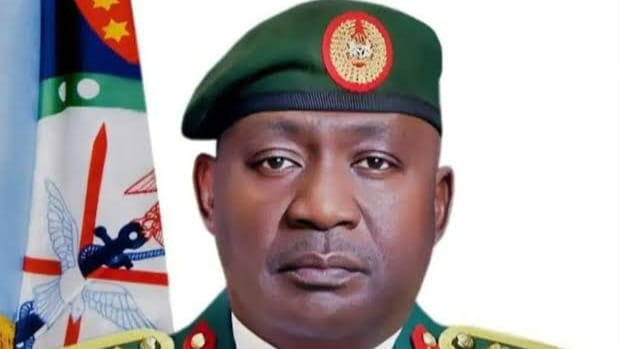Chief of Defence Staff (CDS), Gen. Christopher Musa, says military court martials are instituted not to punish but to correct and maintain discipline within the service.
He added that court martial actions were aimed to strengthen discipline, professionalism and accountability within the Armed Forces.
Musa stated this in Abuja at the public presentation of the book “Annotation of Cases on Court Martial,” co-authored by Maj.-Gen. Mahmood Wambai and Ali Omachi, Esq.
He said the military justice system was designed to uphold fairness while maintaining the discipline required for effective national defence.
He stressed that the court-martial process remains indispensable for enforcing service laws.
“Court-martial is not meant to punish but to correct and preserve discipline, the soul of the Armed Forces.
“Its objective is to ensure fairness and accountability while keeping our forces combat-ready and professionally responsible,” he said.
Musa commended the authors for producing a scholarly reference that deepens understanding of military law and supports ongoing reforms in the Armed Forces’ justice administration.
Also speaking, former Chief of Army Staff, Lt.-Gen. Tukur Buratai (Rtd) described the book as a milestone in Nigeria’s evolving military jurisprudence, bridging the gap between discipline, law, and democratic accountability.
He said the work reflects the authors’ deep commitment to justice and professionalism, noting that a credible military justice system is central to operational efficiency and public confidence.
“The court-martial system remains the bedrock of military discipline and professionalism.
“A fair and transparent process enforces the Armed Forces Act and reinforces public trust that the military operates under the rule of law,” he said.
The former Nigerian Ambassador to the Benin Republic cited landmark judgments such as Eweka v. Nigerian Army and Gideon Uweri v. Nigerian Army as precedents that continue to shape Nigeria’s military legal landscape.
Speaking of the book, the author, Maj.-Gen. Wambai said it was motivated by a desire to address misconceptions and technical errors that often lead to appellate courts overturning court-martial decisions.
He emphasised that a well-understood court-martial process safeguards discipline and protects the integrity of the Armed Forces.
“Many of such reversals stem from a limited understanding of military law. We aim to provide clarity and ensure both military lawyers and appellate judges are properly guided,” he said.
The co-author, Ali Omachi, a private legal practitioner, said the book offers detailed commentary on appeal court decisions involving court martial cases, highlighting gaps that have weakened military trials over time.
Omachi said the book provided a comprehensive resource for judges, military legal officers, and scholars committed to advancing justice and discipline in the Armed Forces.
“The essence of this work is to bridge the gap between the theory and practice of court-martial law. We analysed several judgments and proposed reforms to make the system more credible and efficient,” Omachi said.





